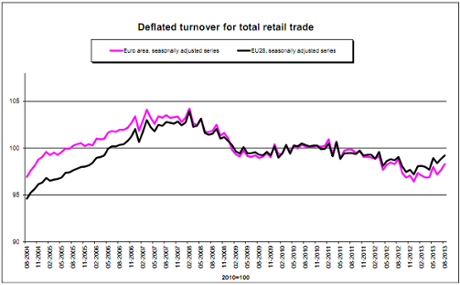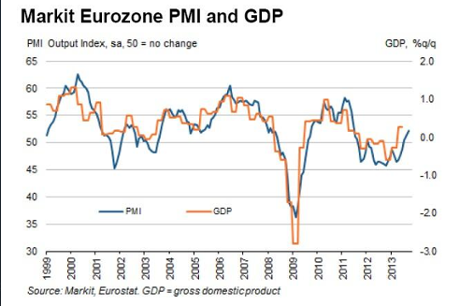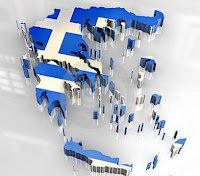 “We must leave the austerity cage,” he told leaders of his Democrat Party
(Pd), responding to Italy’s electoral earthquake by tearing up his pre-election
programme. “A change of course is absolutely necessary given that five years of
austerity and attacks on workers have pushed up public debt levels across
Europe,” he said.
“We must leave the austerity cage,” he told leaders of his Democrat Party
(Pd), responding to Italy’s electoral earthquake by tearing up his pre-election
programme. “A change of course is absolutely necessary given that five years of
austerity and attacks on workers have pushed up public debt levels across
Europe,” he said.
“The vicious circle between belt-tightening and recession is putting
representative government at risk and making it impossible to govern. The
immediate emergency is the real economy and joblessness,” he said. The pledge puts Mr Bersani on a collision course with the ECB, which is
constrained from helping to shore up the Italian bond market unless Rome
complies with Europe’s austerity agenda. “Italian voters may have effectively voted away the ECB safety net,” said
Christian Schulz from Berenberg Bank. The central bank cannot activate its bond
purchase programme (OMT) unless Italy requests a rescue from the EMU bail-out
fund, and that in turn requires a vote in Germany’s Bundestag.
“The ECB cannot – and will not want to – do anything to help Italy after the
inconclusive election result, even if borrowing costs spiral out of control,” he
said.
Mr Bersani’s Democrats (Pd) and its allies control the lower house but failed
to win the senate. He is hoping for tacit support on a law-by-law basis from the
Five Star Movement of comedian Beppe Grillo. Mr Grillo has responded with a volley of anathemas, calling Mr Bersani a
relic from a defunct political order that must be swept away by civic
revolution. Yet many of his 163 senators and deputies say the movement should
seek common ground with the Pd.
Mr Bersani said Italy should mobilize its EU voting weight to push for an
EU-wide change of course. He has natural allies in Paris.
French finance minister Pierre Moscovici warned EMU colleagues on Monday that
current policies “risk a loss of social and political confidence across Europe.
We must not pile austerity on top of recession”. Mr Moscovici said France would need an extra year to meet its deficit target
of 3pc of GDP and called for action to tackle the root of the crisis with an
EMU-wide growth strategy.
French officials are deeply alarmed by the relentless upward rise in France’s
unemployment rate to 10.6pc, or 26.9pc for youth. President Francois Hollande’s
popularity ratings have crashed from 55pc to 30pc since his election in May, the
fastest decline ever recorded for a French leader.
Italy, France, and Spain toyed with a Latin bloc alliance last year to
confront Germany over EMU’s contractionary policy mix, but the initiative faded.
Mr Hollande pulled back from a showdown with Berlin and ultimately pushed
through further fiscal cuts and reforms, while Italy’s Mario Monti was never
willing to jeopardise the European Project that he served for ten years as a
commissioner.
Critics says Mr Monti, whose Civic Choice list won just 10pc of the vote,
went native in Brussels long ago and has been slow to understand the deeper
political crisis unfolding in Italy.
The outgoing premier gave them fresh ammunition today, saying that it would
be better to hold fresh elections than to see an anti-EU government to take
power.
It is unclear whether a second vote would achieve what he intends. The latest
snap polls show that Mr Grillo’s support is still rising, jumping from 25pc to
28pc.
Ominously, nostalgia for Fascist leader Benito Mussolini has started to
emerge as the post-War order crumbles. Two key figures have praised elements of
Fascist rule over the last two days.
A leader of the Five Star Movement professed “fascination” with the Fascist
sense of the Italian state and the family, while the deputy state secretary of
the economy said Mussolini “governed well until 1935.” (source telegraph)
 Several hundreds of people were protesting in the village of Silistea-Pungesti in Eastern Romania on Wednesday against plans by US company Chevron to start operating the first shale gas exploration drill in the county of Vaslui, news agency Agerpres reports.
Several hundreds of people were protesting in the village of Silistea-Pungesti in Eastern Romania on Wednesday against plans by US company Chevron to start operating the first shale gas exploration drill in the county of Vaslui, news agency Agerpres reports.




















